You are here: Home > Results > Other
Second Streamer Design Workshop
On September 20th 2017 the Second STREAMER Design Workshop took place in Arnhem, in the Netherlands. Our host was the STREAMER Dutch partner Rijnstate Hospital, who is also one of the 4 pilot cases within the project. The workshop was jointly prepared with the other Dutch STREAMER partners: DEMO Consultants, De Jong Gortemaker Algra, TNO and DWA.
Download here presentations Second Design Workshop:
1 Introduction to the workshop (by Marc Koster, Rijnstate Hospital)
2 STREAMER BIM approach within Rijnstate Hospital (Willem Jan Hanegraaf, Rijnstate Hospital)
3 STREAMER Semantic Labels, Roberto Traversari, TNO
4 STREAMER Design methodology- Label validation, Jan-Peter Pols, DWA
5 STREAMER Design methodology- MEP selection, Jan-Peter Pols, DWA
6 STREAMER Energy Calculation Tools, Roberto Traversari, TNO
7 STREAMER Early Design Configurator (EDC) by Sander Bruinenberg, DEMO Consultants
8 EDC integration within RE Suite and Decision Support Tool, Andre van Delft, DEMO Consultants
9 Possible follow-up developments, Andre van Delft, DEMO Consultants
For software related questions please contact DEMO Consultants at resuite@demobv.nl
For general questions regarding the STREAMER project please contact TNO at freek.bomhof@tno.nl
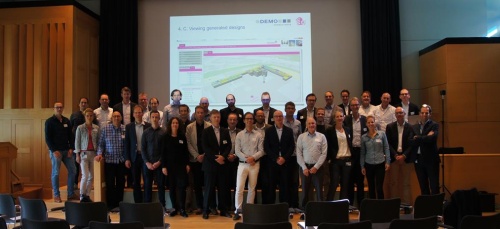
This workshop followed in the footsteps of the 1st Design Workshop (30-03-2016/ see for more detailed information) and consisted of introducing the latest version of the Early Design Configurator (EDC). This is one of the very visible results of STREAMER which has attracted much interest from the Implementers Communities (pilot hospitals). The idea of the EDC is based on the necessity to evaluate different design alternatives (during the early design phases of a construction project) in order to choose the best design direction in terms of energy efficiency, cost and quality. In general, it is time-consuming to create design alternatives manually; thus, the EDC takes the Program of Requirements, a building context consisting of the outer shell and traffic systems and the Design Rules as input and automatically creates an optimal design. By changing the (priorities of) Design Rules and creating different building contexts, different design alternatives can be created and evaluated.
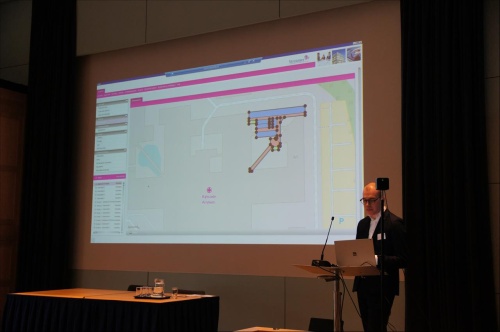
In the last year of the project (2016- 2017), the EDC has been identified as a main result of STREAMER and the tool has been extensively elaborated, based on feedback from the Implementers Communities. Much effort has been given to make this tool effectively interoperable with the other tools in the project and that has been extensively presented during this second workshop in Arnhem.
The workshop was both theoretical and practical as participants got a first impression of the tools and, subsequently, got their hands ‘dirty’ by playing with the Design Configurator and creating their own design alternatives. They got the chance to create their own design alternative, perform the optimization of that alternative and select MEP systems for their designs. Subsequently, they analyzed their alternative with regards to energy consumption and financial performance.
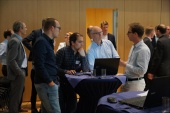
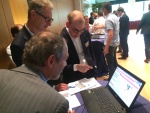
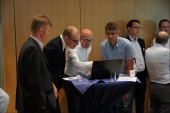
Finally, using the Decision Support Tool (DST- software tool that enables design teams in early design stage to assess and compare different design alternatives and displays outputs of BIM/ GIS tools through the dashboard in a user-friendly way in the form of (Key) Performance Indicators) the participants were able to reflect on their design alternative, and the best performing alternative (out of 8 alternatives) was identified.
We now look back on two inspirational workshops that helped this ambitious development of a research prototype (EDC) to slowly becoming a commercially exploitable product- the ultimate goal of EC research projects and their consortia.